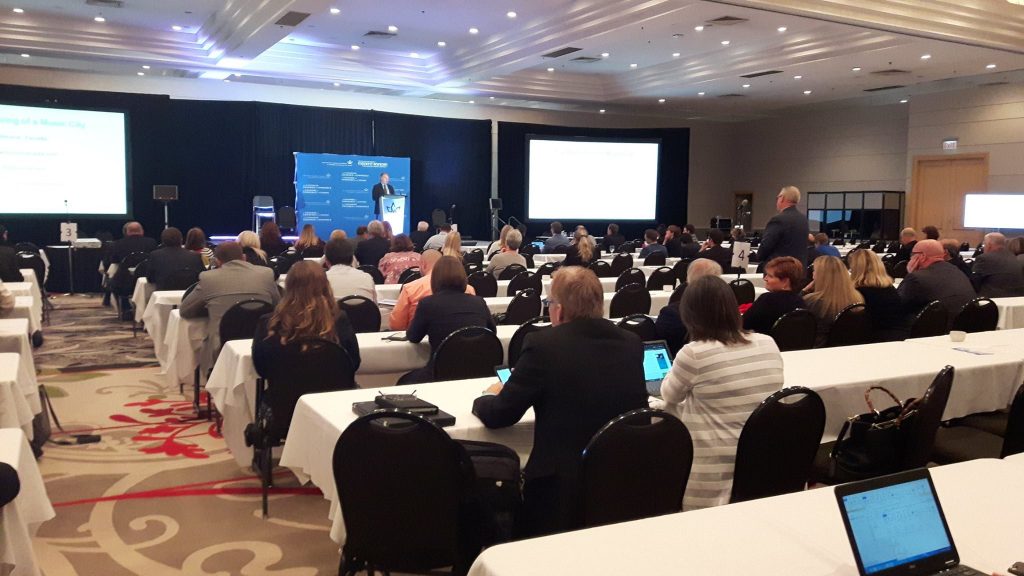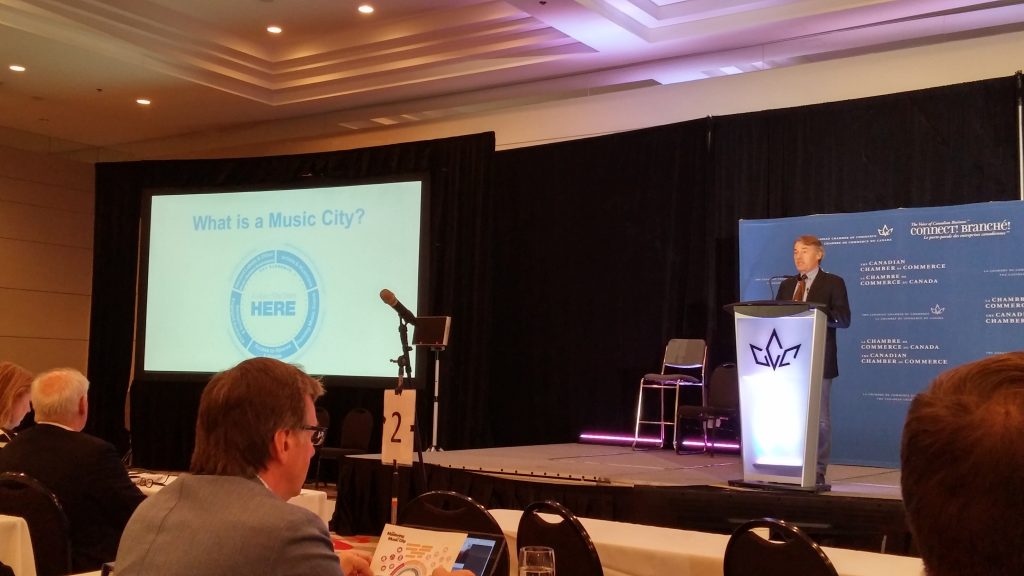At Music Canada’s 2016 Annual General Meeting, held Oct 18 at Revival in Toronto, we were privileged to have the Honourable Eleanor McMahon deliver opening remarks to our guests.
Minister McMahon was introduced by Shane Carter, President of Sony Music Canada, who noted the passion for music she has shown since being appointed Ontario’s Minister of Tourism, Culture and Sport in June of 2016.

The MPP for Burlington is a booster of music education, and believes her own musical training helped her to be a better politician.
“I took vocal lessons right up into university…music was everywhere in our home,” said the Minister. “And singing with others, whether in our church choir, or around a campfire taught me the value of personal expression, creativity, discipline and craft, as well as harmony and teamwork.”
“Having the opportunity to express myself through music was integral for me to understand who I was growing up, and who I am today,” said Minister McMahon.
It was the first opportunity for many in attendance to meet the Minister, who spoke with guests including Universal Music Canada recording artist Alx Veliz, who would later perform at the event.
In her remarks, she addressed the connection between culture and the economy, saying “our culture and our economy are inextricably linked.”
“Our government recognizes the many opportunities for the province’s music scenes to build up our cultural sector and our economy, to mobilize Ontario’s wealth of talent, our state-of-the-art production facilities, the wide range of venues, and vibrant festivals, with the aim to make it Canada’s largest – and one of the world’s most diversified music jurisdictions.”
The Ontario Government has indeed displayed recognition of the value our music sector brings to the province. The Minister referenced the formulation of Ontario’s Culture Strategy, which per the Minister “commits the government to continue to build Ontario as a leading North American center for music production and performance,” and OntarioLiveMusic.ca, which promotes Ontario’s live music events. Minister McMahon called the Ontario Music Fund “something truly unique in Canada,” a leveraging of talent and economic opportunity that other jurisdictions are now looking to replicate. The Ontario Music Fund has resulted in “1,274 full-time equivalent jobs, supporting events attended by 1.6 million people, while giving a platform to more than 1,900 Ontario artists to show the world what they do best,” remarked the Minister.
Music Canada’s President & CEO, Graham Henderson, thanked Minster McMahon for her remarks, adding how great it is that she has displayed a belief in the power of music to change society, a belief no doubt shared by many in the room.

Music Canada’s 2016 AGM with (L-R) Warner Music Canada President Steve Kane, Music Canada’s Executive Vice President Amy Terrill, The Honourable Minister Eleanor McMahon, Sony Music Canada’s President Shane Carter, Music Canada’s President and CEO Graham Henderson, and Universal Music Canada President Jeffrey Remedios.
Below is the full video of Minister McMahon’s opening remarks.
For more photos from the Annual General Meeting, visit our photo album on Facebook.







 The Rambler is a column by Graham Henderson, President of Music Canada. Graham writes from time to time about developments in the music industry, new trends or just about music! Let’s face it, Graham has been around for a long time and has a lot to ramble on about.
The Rambler is a column by Graham Henderson, President of Music Canada. Graham writes from time to time about developments in the music industry, new trends or just about music! Let’s face it, Graham has been around for a long time and has a lot to ramble on about.




Music Canada